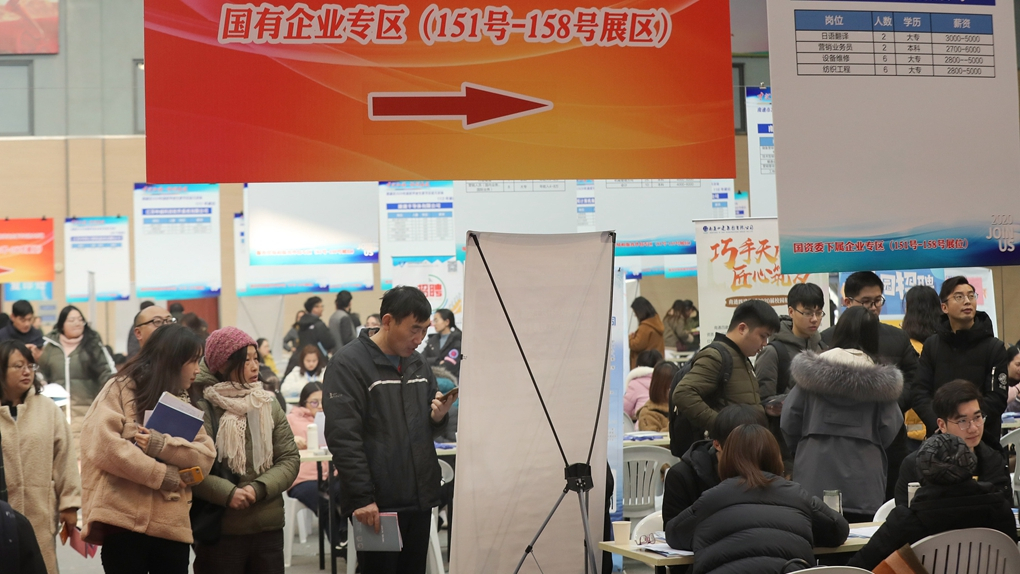
A job fair held in Nantong City, Jiangshu Province in south China, January 12, 2020. /VCG
A job fair held in Nantong City, Jiangshu Province in south China, January 12, 2020. /VCG
As the spread of COVID-19 slows down in the country, China is endeavoring to stabilize its employment. The country has mobilized the centrally-administrated state-owned enterprises (central SOEs) to boost its recruitment for graduates and migrant workers in a plan launched on March 12.
China's state asset regulator data published on Thursday shows that, as of March 23 almost 300,000 positions for 8,000 enterprises have been offered online, with the support of the CIIC (China International Intellectech Co.) and SDIC (SDIC Human Resources Service Co.), two of leading human resource service providers in China. These participating enterprises also include private enterprises and foreign enterprises. So far, 740,000 resumes have been accepted.
Spring is usually a peak hiring season in China. But, the coronavirus outbreak has disrupted the pace of recruitment, especially for new graduates. The disease also stranded a large number of migrant workers in the country, resulting in labor shortages in some regions.
According to China's Ministry of Education, the population of college graduates this year will be as high as 8.74 million, up 40 percent year-on-year. Graduates are facing greater challenges in finding jobs due to the outbreak of coronavirus. To ease the burden, the State Council has asked to expand the scale of recruitment for state-owned enterprises, public institutions and the military, along with graduate school enrollment and professional internship posts.
Meanwhile, a special recruitment plan targeting migrant workers in poor counties was formulated by the State-owned Assets Supervision and Administration Commission (SASAC) of the State Council. The plan requires central SOEs, especially labor-intensive ones to provide more positions for job seekers in counties under the poverty line. Approaches such as listing vacancies online and direct recruiting in poor counties will be adopted.
To help migrant workers return to work, the country will continue to conduct a "point-to-point" nonstop transportation as well as establish a series of urban infrastructure and public service facilities to help migrant workers find work in their vicinity.